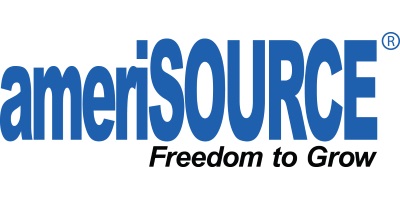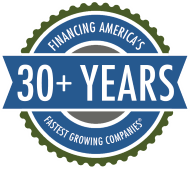Published Article: Non-Bank Lenders Help Pick Up Slack For Small Startups
Release date: May 5, 2008
By TALI ARBEL
Associated Press
Scott Metzger wanted to start a restaurant-microbrewery in San Antonio. His credit was good. His business plan was sound. He should have had an easy time getting financing.
He didn’t. After spending a year developing relationships with three large banks, he was abruptly denied last December.
The state of the national economy had soured, the banks told Metzger, and they were tightening loan standards companywide in an attempt to lower risk.
Left on the hook for thousands of dollars, he turned to his credit union, a not-for-profit lending cooperative. His loans were approved within two weeks, and his brewery is set to open in October.
These days, small-business owners such as Metzger have to be creative about getting the money to start and expand their companies. Many are turning to nontraditional sources, such as credit unions. Increasing numbers are going to online lending sites that cut out the traditional bank middleman and to factoring companies, which buy companies’ future revenues.
Factoring is enjoying a cyclical upturn that it often sees during economic downturns, while credit unions and online social lenders hope the uptick in their small-business lending volume survives even after banks’ lending returns to normal.
But some of these alternative financers are more expensive than a traditional bank loan, or brand new and largely untested.
Even as the Small Business Administration’s main loan program gave out 17.6 percent fewer loans by early April than in the same period last year, online lending auction site Prosper.com has seen a big jump in high-quality borrowers and loan volume. At the end of 2007, 43 percent of Prosper Marketplace Inc.’s borrowers had credit scores of 720 and above, up from 25 percent in December 2006.
Credit-scoring agencies such as Experian, which Prosper uses, assign credit scores based on a consumer’s bill-paying history, debt and other data to determine how likely you are to repay a loan in time; a prospect with a score of 720 is considered a prime borrower.
Prosper lent $81 million last year in an eBay-style marketplace and expects to beat that number in 2008. Would-be borrowers choose their interest rate, which averages 7.8 percent to 15.6 percent for those with good credit. That’s roughly comparable to the rates on unsecured loans for small businesses offered by Wells Fargo & Co. on its Web site and, CEO Chris Larsen said, much cheaper than rates on business credit cards.
Market is growing
At least four Web social lenders have joined the marketplace within the past 12 months: Zopa Inc., GlobeFunder Ventures Inc., Virgin Money USA and Lending Club.
“There’s been an enormous market of underserved customers that these new products reach,” said Mitch Jacobs, CEO of On Deck Capital Inc., an online lender.
Peer-to-peer lenders such as Prosper and Lending Club match lenders and borrowers, while Zopa, an online social financer, is backed by partner credit unions, from which borrowers can pick a lender. Investors on Zopa can then help out a borrower by buying a certificate of deposit linked to the borrower’s profile, reducing a borrower’s monthly repayment.
Online Banking Report estimates that loans given out by peer-to-peer online lenders such as Prosper could grow to as much as $3 billion in 2012 from $86 million in 2007. That number is still only a small fraction of the $14.3 billion guaranteed by the SBA in its 2007 fiscal year — but SBA loans have been contracting for three years running.
Jennifer Hogan, a self-employed photographer, needed to borrow $20,000 to publicize her company in the San Francisco Bay area. She was rejected by Capital One Financial Corp., and she couldn’t afford a preapproved Wells Fargo & Co. credit line or credit card. She applied to Zopa and had her money a week later.
“We, like all issuers, have tightened lending standards over the course of the last year,” said Capital One spokeswoman Pam Girardo. She stressed the small-business credit cards offered by the bank. A Wells Fargo representative also noted that the bank took the current economic environment into account when deciding whether to extend funds through credit lines, business loans or credit cards.
Online loans are small
While online lenders can offer better terms than credit cards, their products are limited. Most of the major sites’ loans top out at $25,000. Globefunder says it will probably offer a new maximum loan amount of $100,000 in less than two months, but the SBA’s main lending program can guarantee loans of up to $2 million.
Like Metzger, the microbrewer, others seeking heftier financing turn to credit unions, lending cooperatives that are not traditionally associated with business lending. Most of the credit unions that make business loans today began to do so during the past 15 years as they were granted community charters, allowing them to serve a geographic area rather than a single company’s employees or a professional association.
Credit unions lend more
Credit unions made almost $12 billion worth of new business loans last year. The Credit Union National Association has said that credit union business loans totaled $28 billion in 2007, with the average size of business loans granted being $181,000.
In the second half of 2007, almost 20 percent more business loans were distributed through credit unions than in the second half of 2006, even as credit unions are limited in the amounts of business loans they can make by federal legislation. And business loans under $50,000 are not reported as business loans, so the actual number of business loans distributed is higher.
Meanwhile, commercial banks have increasingly referred loan-seeking businesses to asset-based lenders and factoring companies. A traditional source of financing for the apparel and furniture sectors, factors buy up a company’s incoming revenues for a fee, giving them that capital up front. Asset-based lenders float loans against the incoming sales receipts.
Factors offer a cushion of protection to companies whose customers have a lot of debt and could be unable to repay them. Since the factor buys up a business’ future sales, potential defaults by that company’s customers are absorbed by the factor.
Amerisource Funding Inc., a Houston-based factoring and lending company, has seen new business in the first three months of this year up 179 percent from activities in the same period last year, and up 49 percent from the last quarter of 2007.
“We’re seeing deals now that six months ago a bank would have done,” said Michael Monk, Amerisource’s chief executive. And for growing companies selling to debt-burdened customers, Amerisource helps cover risk, even if it is more expensive than a bank.
Contact:
Marilyn Davis (713) 863 8300 Ext. 243
mdavis@amerisource.us.com







